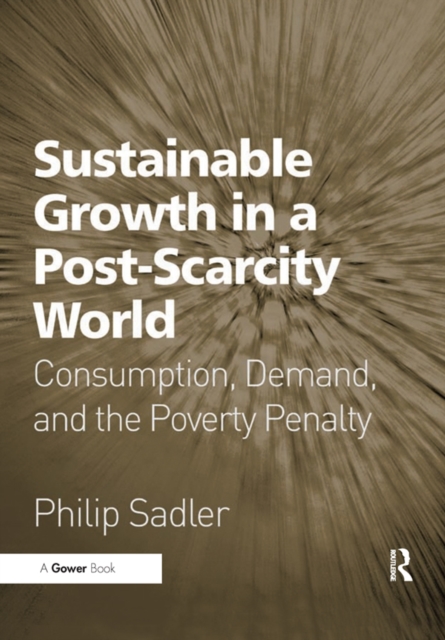
Sustainable Growth in a Post-Scarcity World : Consumption, Demand, and the Poverty Penalty EPUB
by Philip Sadler
EPUB
Description
Over 20 years ago Philip Sadler, then head of a leading British business school, wrote Managerial Leadership in the Post-Industrial Society.
In it he predicted that business would experience the most radical transformation since the Industrial Revolution of the 19th century.
This transformation has now taken place. In his latest book, Sustainable Growth in a Post-Scarcity World, Sadler charts developments once envisaged by Keynes, Chase, Galbraith and Packard, and more recent radical thinkers such as Chris Anderson. Sadler describes how many goods and services have moved from relative scarcity to relative abundance, and asks how this trend can be reconciled with the global issues of population growth and climate change.
He assesses the impact of new technologies, new energy sources, new materials and the development of artificial intelligence, on business, government and economics, and discusses the challenges ahead - the creation of new business models, the need to meet people's legitimate expectations of improved living conditions while avoiding environmental catastrophe, and the need to adapt ideas developed in scarcity to conditions of abundance.
Why is it that in countries foremost in creating post-scarcity conditions, millions are still in poverty, and billions, worldwide, still lack basic necessities of life? Philip Sadler agrees with those who say the relief of global poverty cannot rely on aid and corporate philanthropy.
He explores the idea of re-engineering products and delivering them into bottom-of-the-pyramid (BOP) markets, and concludes that the more global companies take this route, as some are already doing, the more profitable they will find it, and this will in turn help the poorest people who currently pay more for goods and services - the 'poverty penalty' - than the rich.
Information
-
Download - Immediately Available
- Format:EPUB
- Pages:264 pages
- Publisher:Taylor & Francis Ltd
- Publication Date:01/04/2016
-
Category:
- General arts
- Humanities
- Society & culture: general
- Microeconomics
- Economics of industrial organisation
- Economic growth
- Business strategy
- Production & quality control management
- Research & development management
- Sales & marketing management
- Corporate governance & responsibilities
- Sales & marketing
- Operational research
- Sustainability
- ISBN:9781317047797
Other Formats
- Hardback from £140.00
- PDF from £44.09
- Paperback / softback from £47.05
Information
-
Download - Immediately Available
- Format:EPUB
- Pages:264 pages
- Publisher:Taylor & Francis Ltd
- Publication Date:01/04/2016
-
Category:
- General arts
- Humanities
- Society & culture: general
- Microeconomics
- Economics of industrial organisation
- Economic growth
- Business strategy
- Production & quality control management
- Research & development management
- Sales & marketing management
- Corporate governance & responsibilities
- Sales & marketing
- Operational research
- Sustainability
- ISBN:9781317047797






